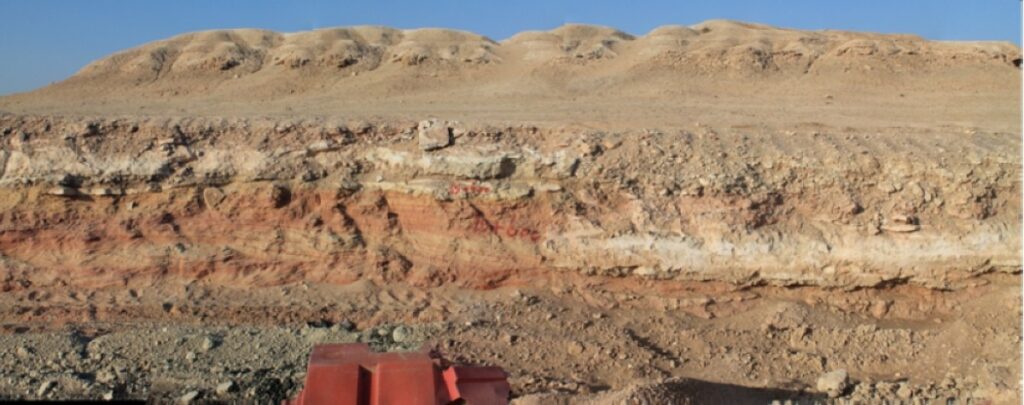KUWAIT: Chairman of the Kuwait Society for Geosciences Dr Mubarak Al-Hajri affirmed that Kuwait is home to several significant geological sites that are eligible for inclusion in the UNESCO Global Geoparks Network. In remarks to Kuwait News Agency (KUNA) on Saturday, Dr Al-Hajri stressed that establishing geological parks in the country aligns with sustainable development objectives, serves as a potential source of national income, and supports the tourism sector.
Dr Al-Hajri noted that listing local geological sites under the Global Geoparks Network is a strategic goal for the Society and a vital step in preserving the country’s natural and cultural heritage. He emphasized that the initiative could be realized through cooperation with relevant government bodies. Explaining the nature of geological parks, he said they are geographically defined areas known for their unique and diverse geological features, and are managed comprehensively to protect their heritage while promoting sustainable development. These parks support education, tourism, local community participation, and job creation.

Subiya geological site that mimics the surface of Mars.

Natural laboratories open to students and researchers to study Earth sciences.


An attractive site for visitors interested in nature, contributing to strengthening the local economy and raising environmental awareness.
“Geological parks serve as open-air laboratories for students and researchers to explore earth sciences, biodiversity, and climatic history,” he stated. “They are also attractive destinations for nature enthusiasts, thereby contributing to the local economy and fostering environmental awareness.” Citing international examples, Dr Al-Hajri said many countries have successfully leveraged geological parks to reduce disaster risks and raise public awareness on seismic and volcanic hazards. These parks also serve as sanctuaries for rare ecosystems, helping to safeguard biodiversity.
Outlining the Society’s vision, Dr Al-Hajri described the project as a national endeavor that requires the collaboration of government entities, private sector partners, civil society organizations, and academic institutions. He highlighted the importance of incorporating cultural and heritage components such as traditional crafts, local cuisine, and community-led activities that support sustainability while protecting fragile sites from neglect or misuse.
Among the sites identified for the initial phase of the project is Al-Subiya, which Dr Al-Hajri described as one of the most promising candidates due to its historical significance, links to the ancient Ubaid civilization, and its rich environmental and ecological diversity. He explained that the implementation process involves several stages, including evaluating candidate sites based on their geological, environmental, and cultural value; ensuring connectivity among them to form a cohesive geological network; and developing necessary infrastructure such as visitor trails, signage, and information centers. Certain areas would be open to visitors while others would be protected to maintain ecological balance.
The plan also includes forming a multidisciplinary site management team comprising geologists, environmentalists, cultural experts, and tourism professionals, in addition to establishing monitoring systems to prevent environmental violations or degradation. Future phases will involve launching educational and training programs, organizing tourism-related activities, collaborating with international geoparks, and utilizing digital technologies to enhance site promotion and accessibility through media platforms.
Dr Al-Hajri reiterated that the initiative reflects Kuwait’s broader commitment to developing its tourism sector as a key pillar of the “New Kuwait 2035” vision, which aims to diversify income sources and promote sustainable growth. He also noted Kuwait’s readiness to host the 52nd meeting of the UN World Tourism Organization’s Regional Commission for the Middle East next year, under the chairmanship of Minister of Information and Culture and Minister of State for Youth Affairs Abdulrahman Al-Mutairi.
The UNESCO Global Geoparks designation, launched in 2015, is awarded to geographic areas with internationally significant geological heritage and managed under a holistic model integrating conservation, education, and sustainable development. The designation is valid for four years and subject to periodic reevaluation to ensure continued compliance with UNESCO standards.— KUNA

